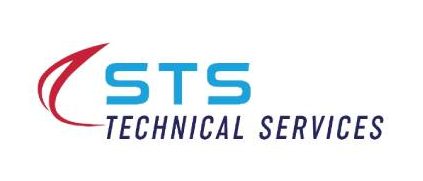Auditing Services
- Home
- Auditing Services
Services Menu
About Us
STS Technical Service Pte Ltd (STS) is a one-stop technical service company that helps companies develop, implement and maintain Quality Management Systems.
Address:
Blk 18 Sin Ming Lane, #02-10,
Midview City Singapore 573960
Contact: +65 81354824
Email: admin@ststechnicals.com
Our STS qualified specialists have audited and assessed quality systems at facilities employing from twelve to more than thirty thousand workers. This experience, along with a thorough understanding of the various standards, ensures prompt, accurate and beneficial results.

Internal, Supplier and HSE Audits
STS‘s certified auditors can perform your required internal audits to ensure continual improvement, as well as compliance to approved standards. Our certified auditors have the auditing experience along with the technical expertise to optimize the Quality Management System review.
- Internal management system audits
- Integrated management system audits
- Technical audits to API product specifications or other product standards
- Process Audits
- Gap analyses
- Pre-Certification Audits
- Product Audits
STS can provide assistance with corrective actions and follow-up of effectiveness with closure of issued non-conformances.
We assess manufacturing, service and quality capabilities to ensure that suppliers meet your requirements and maintain quality standards by verifying that equipment and materials conform to contractual specifications. These services can include initial qualification of suppliers, standardization of global supply chain requirements, or evaluation for cause.
Implementing a Health, Safety and Environmental Management System and Auditing program serves to validate regulatory compliance, as well as conformance with internal requirements, and provide a structure to minimize risk to workers and the environment.
- Integrated HSE and Quality Systems
- Environmental Management Systems (ISO 14001)
- Occupational Health and Safety Management Systems (OHSAS 18001)
- Safety and Environmental Management Systems (SEMS-US 30CFR250, 1900)
- Process Safety Management Systems
- Contractor HSSE Program Auditing
- Regulatory Compliance Auditing, including Protocol Development
First-party audits are often called internal audits. This is when someone from the organization itself will audit a process or set of processes in the quality management system to ensure it meets the procedure that the company has specified. This person can be an employee of the organization or someone hired by the organization to perform the internal audits, such as a consultant, but the important thing is that the person is acting on behalf of the company rather than a customer or certification body. This type of audit is focused not only on whether the company processes meet the requirements of a standard, but all rules the company has set for itself. The audit will look for problem areas, areas where processes do not align with each other, opportunities for improvement, and the effectiveness of the quality management system. By design, these audits can and should be much more in depth than the other audits, since this is one of the best ways for a company to find areas to improve upon.
For more information on how to structure internal audits, take a look at Five Main Steps in ISO 9001 Internal Audit.
A second-party audit is when a company performs an audit of a supplier to ensure that they are meeting the requirements specified in the contract. These requirements may include special control over certain processes (such as soldering or welding), requirements on traceability of parts (knowing which parts are used in which products), requirements for special cleanliness standards, requirements for specific documentation, or any of a host of other items of special interest to that customer. These audits can be done on-site by reviewing the processes or even off-site by reviewing documents submitted by the supplier. The customer can audit all or part of the contract – whatever they see a need to audit. It is important to understand that a second-party audit is between the customer and the supplier and has nothing to do with becoming certified.
Many people thought that second-party audits would not be necessary once a company is certified to ISO 9001 by a certification body, but this is not necessarily true. Even if you are certified by a third-party audit, any of your customers may still want to perform a second-party audit to look at elements of their contract, especially if these elements are not the same as the ISO 9001 requirements. This is not required by all customers, and is not required to be certified to ISO 9001 by a certification body, but it is specified in some contracts and there are some customers that choose to perform these audits.

